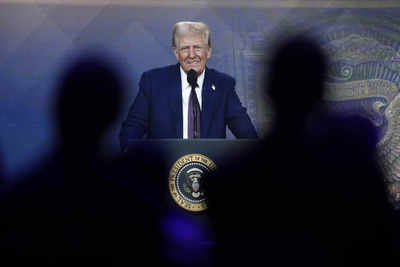In a sweeping move that underscores his second-term agenda, US President Donald Trump has signed two executive orders aimed at reshaping the landscape of American education. The directives address curricula on race and sexuality in schools and seek to combat antisemitism on college campuses, signaling a renewed federal push to regulate educational content and campus policies. The second one, titled Additional Measures to Combat Anti-Semitism mandates stricter measures against antisemitic incidents in higher education, holding institutions accountable for protecting Jewish students. It instructs federal agencies to utilize all appropriate legal tools to prosecute and hold accountable perpetrators of unlawful antisemitic harassment and violence. The order also directs the Department of Education to ensure that institutions receiving federal funding enforce policies protecting Jewish students from discrimination and harassment. Non-compliance could result in the withdrawal of federal funds, thereby holding educational institutions accountable for safeguarding their students.
Combatting antisemitism in college campuses
One of the most significant elements of Trump’s executive actions is the focused effort to tackle antisemitism in US colleges and universities. The rising tide of antisemitic incidents on campuses across the country has prompted the president to take a firm stand. Under the terms of the executive order, educational institutions that fail to act decisively in addressing antisemitism could face severe penalties, including the revocation of federal funding and accreditation. In extreme cases, international students affiliated with terrorist organizations, such as Hamas, could lose their visas.
This policy marks a departure from previous administrations, with Trump’s administration taking a more aggressive approach toward ensuring that universities uphold a zero-tolerance stance on hate speech. The threat of financial penalties has added pressure on schools to comply, and many colleges that were under investigation for antisemitism were quick to reach settlements with the Department of Education’s Office for Civil Rights before the administration’s end.
Educational institutions under scrutiny: A rush to settle
Prior to Trump’s formal inauguration, several colleges were already facing investigations into antisemitic incidents. Fearing the repercussions of an incoming administration that made its position on antisemitism abundantly clear, many universities, including prominent institutions like the University of California and Rutgers University, sought to settle their cases. These settlements typically involved agreeing to policy changes, training programs, and reviews of past complaints.
The urgency of these settlements reflects the looming threat of losing federal funding and accreditation. As Kenneth Marcus, former head of the Education Department’s Office for Civil Rights, noted, university leaders were “desperate” to finalize agreements to avoid the potentially devastating consequences of non-compliance as reported by Associated Press, an American news agency. Trump’s warnings to Jewish donors in September about the severe penalties for colleges failing to address antisemitism emphasized the administration’s firm stance on the issue.
Legal and political debate: A clash of constitutional concerns
The two executive orders, while aligning with Trump’s campaign promises, have stirred considerable legal and political debate. Critics argue that the directives overstep federal authority by attempting to dictate the content taught in schools, a move that could be seen as an infringement on free speech and academic freedom. There is also concern about the orders’ compatibility with constitutional protections, particularly regarding the First Amendment.
The controversy surrounding these executive orders raises important questions about the federal government’s role in influencing educational content. While Trump’s supporters view these actions as necessary to protect American values in education, detractors believe they could have unintended consequences for the balance of free expression and academic independence in the nation’s schools.
